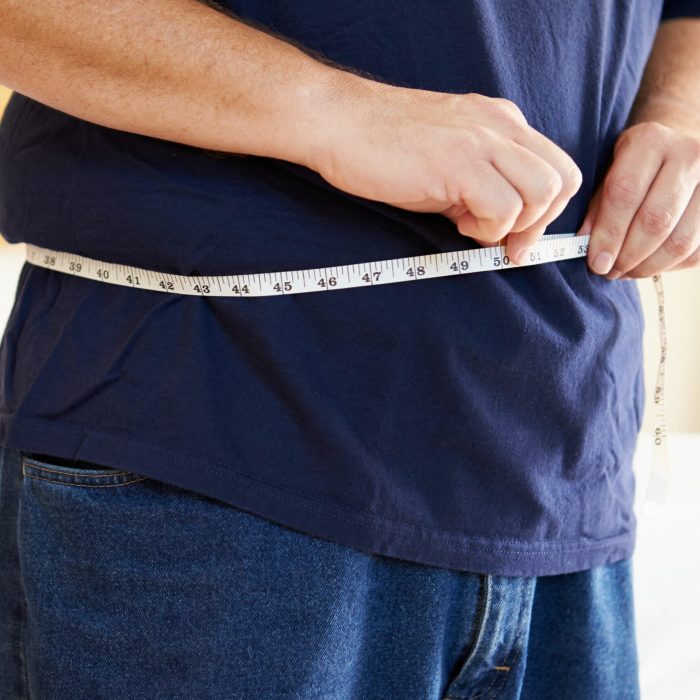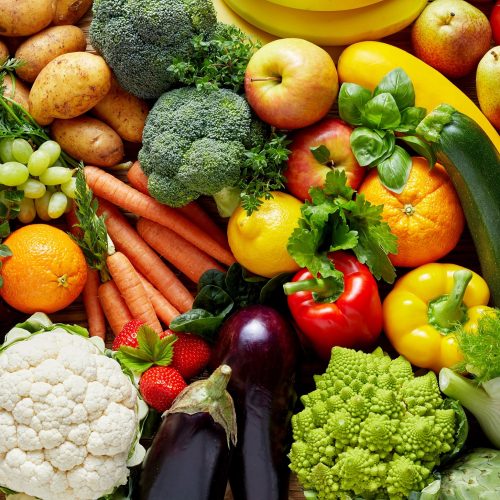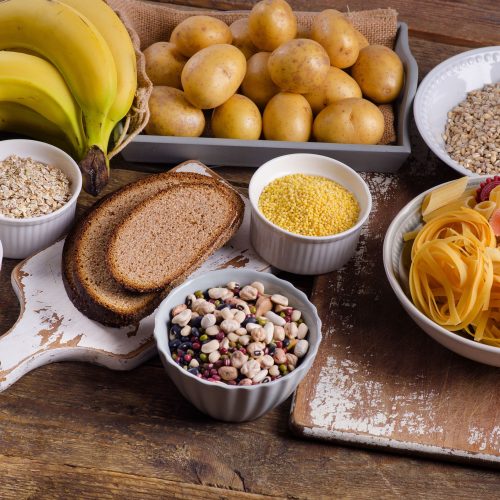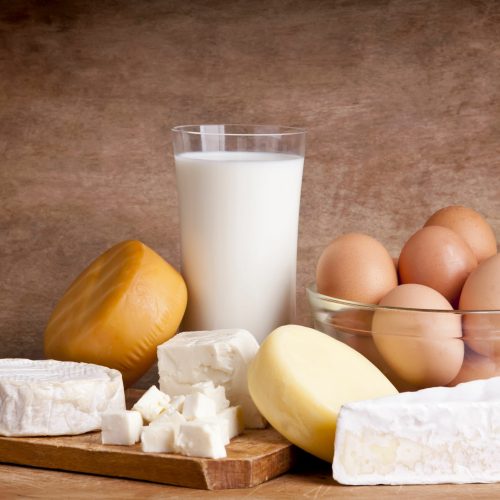Nutrition and COPD.
Making sure you have all the nutrients and vitamins your body needs is important for your overall health, but it can even help you manage your COPD symptoms.
On this page we will discuss the following topics:

Why your weight is important for your health
If you are overweight or obese you are more likely to have other conditions such as diabetes and heart disease alongside your COPD.3 Having extra weight around your chest and neck can also make it harder to breathe in deeply or do general physical activities such as bending to put shoes on, adding to the breathlessness caused by your COPD.2
Not weighing enough is also bad for your health. If you are underweight your muscles will be weaker. This will affect your chest muscles that help you breathe as well as making everyday activities more difficult.2

What is a healthy weight for you?
It’s important to remember that everyone is different. If you’re not sure what your ideal weight is, or you notice your weight has changed, then talk to your doctor, nurse or pharmacist and they should be able to advise you.2
You might have heard of BMI (body mass index), which is where your height and weight are used to calculate if your weight is healthy. When assessing your ideal weight, healthcare professionals will use your BMI and other factors.4
Remember, if you are concerned about your weight at all, add it to your discussion list for your next appointment.
You can use the NHS BMI calculator to get an indication of your ideal BMI here.
Want to discuss this topic in your next appointment?
Add this to your discussion list as a handy reminder to discuss this with your doctor, nurse or pharmacist at your next appointment.
A balanced diet includes a range of the following food groups:1,5
For more information on which foods belong in each group take a look at the NHS Eatwell Guide.
If you need ideas for simple recipes when trying new foods, there are lots of websites available which often have videos giving you step by step instructions. For example, the BBC Good Food site has simple and quick recipes.
Stay hydrated
There’s a reason that the hunt for water is a feature of every good survival movie – it is essential for life. You can live for weeks without food, but only a few days without water.6
Just like eating well, drinking plenty of fluid is not just good for your overall health, but it can also help your COPD. By staying hydrated you reduce the risk of chest infections by making it easier for the mucus to move out of your airways.1
How much water is enough?
You should drink at least 6-8 cups of fluid a day. This includes the water in tea, coffee, milk, and low-sugar squash.1
Fruit juice and smoothies will also count but contain lots of sugar, so to keep to a balanced diet you should only have one small glass of fruit juice per day – just 150ml.5
Caffeinated drinks such as tea and coffee are also OK as part of a balanced diet. However, you need to remember that they can make you produce urine more quickly.7 If you are struggling to get up and about, you might want to avoid having to go to the toilet more often. Also, if you have stress urinary incontinence it is best to cut down on drinks that contain caffeine. For more information on COPD and stress urinary incontinence, follow this link.
The colour of your urine is a good indicator of how hydrated you are. Ideally, it should be clear or pale yellow; if it is darker or has a strong smell then you should try to drink more water.1

IMPORTANT: Before you make any changes to your diet you should talk to a healthcare professional. If you have other conditions as well as COPD, you may have specific dietary needs that should be considered.1
If you have any questions about your health and your diet, add it to your discussion list to remind you. Your doctor will be able to refer you to a specialist if necessary.
It’s very important to talk to your medical team if:
you are losing weight without planning to
you find it difficult to gain weight
you feel weak and don’t have much energy
It can be really tough to try and get a balanced diet when you don’t have any energy or appetite. Luckily there are specialists, called dietitians, to help. They will be able to support you in tweaking your diet to include as many calories, protein and other nutrients as possible. If you struggle with not having an appetite, you may be prescribed nutritional supplement drinks temporarily.2
Importantly, there are plenty of things you can try to maintain your weight or add extra calories to your diet. Take a look at the tips below and experiment with what will work for you.
Tips for adding calories and protein to your meals:2
- Add butter, oil, margarine or ghee
- Use coconut cream, condensed or full-fat milk
- Add yoghurt or custard to desserts
- Be generous with cheese
- Eat avocados and seeds
- Use nut and seed butters like peanut butter and tahini

Tips to help you gain weight:2
- Eat little and often, snacking throughout the day
- Plan your meals in advance; cook more on a day you feel well and freeze portions for times when you have less energy
- Don’t skip meals; maybe set an alarm on your phone to remind you to eat
- Choose high-calorie food and use the tips above to add calories and protein to your meals
- Drink enough fluid to keep hydrated but avoid drinking too close to a meal. It can make you feel fuller and more bloated
- Exercise (if you can) to get your appetite going

Ask for help
Don’t be embarrassed to ask family and friends to support you with cooking or shopping; it’s important you’re eating well and you’ll probably find that people are happy to help.
There are also local voluntary organisations who can help out by delivering your shopping, or even doing it for you.8
Want to discuss this topic in your next appointment?
References
- Asthma + Lung UK. Eating well with a lung condition. Available at: https://www.asthmaandlung.org.uk/living-with/healthy-eating/eating-well
- Asthma + Lung UK. Staying a healthy weight. Available at: https://www.asthmaandlung.org.uk/living-with/healthy-eating/weight
- World Health Organization (WHO). Obesity and overweight. Available at: https://www.who.int/news-room/fact-sheets/detail/obesity-and-overweight
- NHS. What is the body mass index (BMI)? Available at: https://www.nhs.uk/common-health-questions/lifestyle/what-is-the-body-mass-index-bmi/
- NHS. The Eatwell Guide. Available at: https://www.nhs.uk/live-well/eat-well/food-guidelines-and-food-labels/the-eatwell-guide/
- Healthline. How long can you live without water? Available at: https://www.healthline.com/health/food-nutrition/how-long-can-you-live-without-water
- NHS. Water, drinks and your health. Available at: https://www.nhs.uk/live-well/eat-well/food-guidelines-and-food-labels/water-drinks-nutrition/
- Asthma + Lung UK. Help with eating and drinking. Available at: https://www.asthmaandlung.org.uk/living-with/healthy-eating/help







